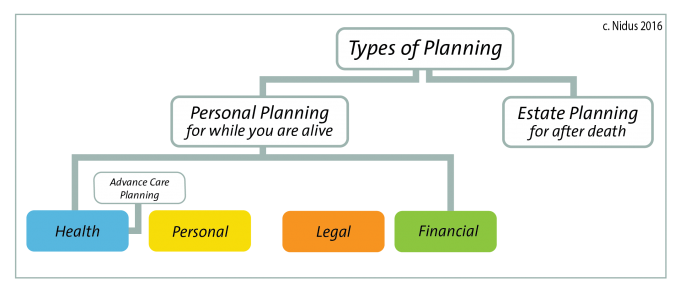Types of Planning - An Overview
Legally reviewed. Last update made in May 2023.
What’s the difference between “Personal Planning” and “Estate Planning”?
There are two key types of planning:
- Personal planning – making arrangements for while you are alive but you may need assistance due to an illness, injury or disability; and
- Estate planning – making arrangements for after death.
Why is Personal Planning so important?
People are living longer lives–and disability, injury, and illness are becoming more common, and inevitable for more people. It is important to plan for these circumstances in the same way that many people are encouraged to explore disability insurance options and not just life insurance.
Personal planning covers preparation for all four areas of your life: health care, personal care, legal affairs and financial affairs. See chart below.

Why shouldn’t I just keep things informal?
Personal planning does not replace informal help provided by your friends and family. Rather, by making legal documents for personal planning you can give your personal supporters the legal authority necessary to help you. The best time to do personal planning is before a crisis occurs.

Personal Planning Forms
Nidus provides both RA7 and RA9 forms.
- See RA Forms
- See Related Forms: Confirmation of Substitution Form; Resigning as a Representative or Alternate; Resigning as a Monitor; Revoking RA
Register
Securely register a copy of your personal planning documents with the Nidus Registry, a BC-based centralized digital repository with 24/7 access. Ensure you are prepared for a health crisis or other emergency.
RELATED INFORMATION
Personal Planning FAQs
Estate Planning FAQs
Sign up for newsletter
Stay updated on the latest developments, resources, and more.
© 2025 Nidus Personal Planning Resource Centre. All rights reserved.

